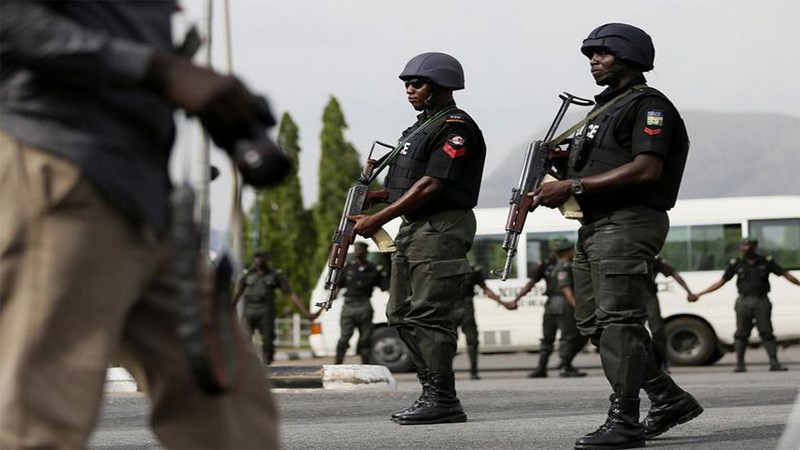Nigerian Army vs. the police: An ordinary citizen’s take on avoidable tragedy
Some weeks back, while I was visiting Abuja, I noticed a common sight, that which disturbed me greatly. I noticed many scruffy, pot-bellied, unkempt and frankly, questionable-looking individuals, all carrying guns, and generally looking quite menacing. I was, of course, suitably perturbed, and I asked my sister, ‘Who’re those characters?’ And she was, like ‘Oh, […]

Some weeks back, while I was visiting Abuja, I noticed a common sight, that which disturbed me greatly. I noticed many scruffy, pot-bellied, unkempt and frankly, questionable-looking individuals, all carrying guns, and generally looking quite menacing. I was, of course, suitably perturbed, and I asked my sister, ‘Who’re those characters?’ And she was, like ‘Oh, they’re policemen.’ She also told me they were probably on a special task force or something, hence the unnumbered, unmarked truck they sat in. I was confused, but kept my peace.
The next day, on the way to Kaduna to visit family, we became stuck in the Kubwa Market gridlock, but patiently crawled on through it. Suddenly, on the other lane, there was a white, unmarked bus, also unnumbered. It had like half a dozen men, who frankly looked like the rogue’s gallery I had encountered the previous day. Dirty jeans, even dirtier shirts, some wearing sandals, and all of them looking like criminals. I asked a kid hawking plantain chips past, and he shrugged and said ‘Na policmen o.’ I shook my head in disbelief, as they continued violating traffic laws, and intimidating citizens with their weapons, and dangerous swagger.
So, imagine the kind of ‘Eureka’ moment I had, when I read in the news that armed policemen, in mufti, in an unmarked vehicle, had been killed by soldiers in an unfortunately tragic altercation in Taraba State! Two versions of the story are online: The police-backed one painted the soldiers as having killed policemen on special duty and freeing a kidnapper who they were conveying wherever. The army-backed one said the soldiers had no idea about the policemen’s identities because of their unorthodox appearance, even as they allegedly ignored three checkpoints, and even fired bullets at the soldiers. Given my first two paragraphs, you can imagine which version I’m compelled by common sense to believe.
Improperly dressed policemen, without doubt, have to be problematic. After all, how can innocent citizens differentiate them from armed robbers? Frankly, that was my immediate thought when I first saw the ‘special duty’ cops in Abuja city, before the ragamuffin-like variants I espied along Kubwa Market road. Only in Nigeria will ‘special duty’ policemen be dressed in un-special gear, and acting in a very un-special manner. While my sister and I had no choice but to look the other way because we’re civilians, I can imagine the situation of a soldier on checkpoint duty in a volatile area, being disregarded by a group of plain-clothed men, with guns, in an unmarked vehicle. Plus said group of men beat three different checkpoints. Haba!
After everything, I saw the usual Nigerian-ese of ‘investigation is going on to get to the facts of the matter’. Well, that’s a story whose conclusion I’m eagerly awaiting. But in the meantime, I strongly urge police authorities to make sure their men and women on operation, special or not, are properly and decently kitted. I have always been of the personal opinion that more than half of a uniformed man’s job rests on his uniform. Yes, his appearance does the initial setting-of-tone for whatever follows, and in his case, his uniform is his appearance. While I’m profoundly sad at the deaths, I would really like to use this opportunity to beg the police authorities to listen to reason, and stop sending people who look like criminals out to do a law enforcer’s job. This letter isn’t meant to demean the Nigeria Police Force and its many, many committed men and women, but is rather, a call for it to be made the best version of itself, for its own good, and of course the good of all Nigerians.
Lola-Maliki wrote in from Lekki Phase II, Lagos.
